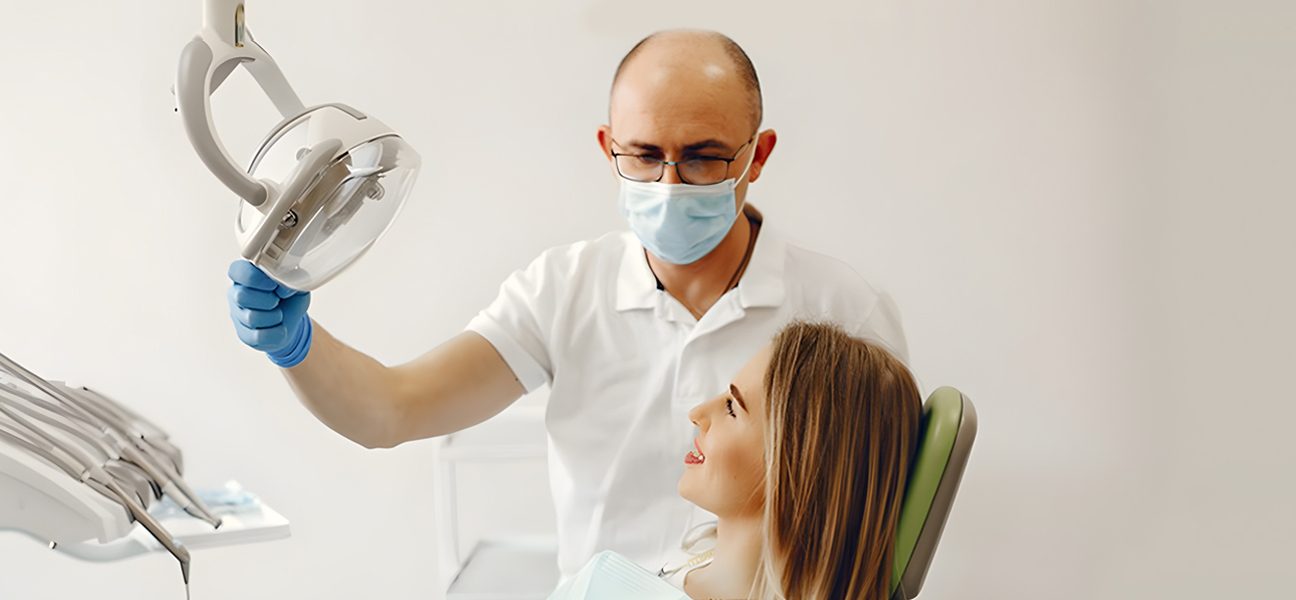How Often Should You Get Screened for Oral Cancer?
Oral cancer is a major health threat that often isn’t detected until it has progressed. Regular oral cancer screening plays a vital role in catching it early, when treatment is most effective. In this blog, we’ll explore how often you should get screened, what affects screening frequency, and signs that mean you should see a dentist sooner rather than later.
What Is Oral Cancer and Why Does Early Screening Matter?
Oral cancer describes malignant tumors that develop in the mouth, throat, or nearby tissues. It can appear anywhere from your tongue and cheeks to your gums, lips, or even the roof of your mouth. While this might sound frightening, understanding what to look for can make a big difference.
Common symptoms of oral cancer include:
- Persistent sores that don’t heal after several weeks
- White or red patches in the mouth
- Unexplained lumps or growths inside the mouth
- Painful swallowing or a persistent sore throat
Why does early screening matter so much? Early diagnosis keeps treatment more manageable and sharply boosts the odds of a full recovery. According to medical experts, early detection can boost survival rates significantly. By staying informed, you give yourself the best chance at maintaining good health and peace of mind.
General Recommendations for Oral Cancer Screening Frequency
Many adults are unsure how often they should schedule an oral cancer screening. Typically, experts recommend screenings at least once a year during routine dental check-ups. If you visit your dentist regularly, you might already be receiving these screenings without realizing it.
Here’s how it usually works:
- Dentists perform visual and physical exams to check for abnormalities.
- Screening generally takes only a few minutes and is painless.
- Regular visits keep you protected by spotting potential problems quickly.
If you don’t currently visit your dentist every six months, consider scheduling routine appointments to ensure you’re screened regularly.
Risk Factors That Influence Screening Frequency
While annual screenings are suitable for most, certain factors may require more frequent checks. Understanding these risk factors empowers you to safeguard your health more effectively.
Risk factors include:
- Tobacco use: Smoking cigarettes or chewing tobacco significantly raises your risk of oral cancer. If you’re a tobacco user, screenings every six months might be advised.
- Alcohol consumption: Heavy alcohol use, especially combined with tobacco, elevates oral cancer risk.
- HPV (Human Papillomavirus): Some HPV strains increase the likelihood of oral cancer. Regular screenings help detect any issues early.
- Age: People over 45 are at higher risk. Increasing age typically means that more frequent screenings are beneficial.
- Family history: If someone in your immediate family had oral cancer, alert your dentist to consider closer monitoring.
Talking openly about your lifestyle and health history helps your dentist recommend a personalized screening schedule, providing extra protection and reassurance.
Signs That Indicate You Should Get Screened Sooner
While regular screenings are important, don’t hesitate to see a dentist sooner if certain signs appear. Your body often gives clear signals when something isn’t right, and paying attention can make a significant difference in your health.
Watch out for these symptoms:
- Persistent mouth sores lasting longer than two weeks
- Unexplained pain or numbness in your mouth, lips, or throat
- Changes in voice or difficulty swallowing that don’t resolve
- Any unusual lumps or thickened areas in your mouth or neck
If you notice these signs, don’t wait for your next routine exam. Seek a dentist’s opinion right away. Acting quickly can ease your worries and enable prompt care, helping prevent more severe issues.
What Happens in an Oral Cancer Screening?
If you’ve never undergone an oral cancer screening, it’s natural to feel uncertain. However, screenings are simple, quick, and painless, and your dentist in Reseville can easily perform them during regular check-ups.
Here’s what usually happens at your dental clinic for cancer screening:
- Visual Examination: Your dentist checks your mouth, tongue, throat, and surrounding tissues visually, looking for unusual spots, discoloration, or swelling.
- Physical Examination: Next, they gently feel your jaw, neck, and inside your mouth to check for lumps or growths that aren’t visible to the eye.
- Advanced Tests: Occasionally, if your dentist notices something unusual, they may recommend additional tests or a biopsy.
Follow-up steps typically include either reassuring you that everything is normal or setting up further tests or referrals if needed. Either way, screenings bring clarity and proactive care to your health journey.
Final Thoughts
Put your oral health first—don’t wait for warning signs to act. Regular screenings can save lives by catching problems early. Reach out to Eureka Ridge Dentistry – Roseville today to schedule your next oral cancer screening. Taking this simple step now ensures you stay ahead of risks and maintain a healthy smile for years to come.
